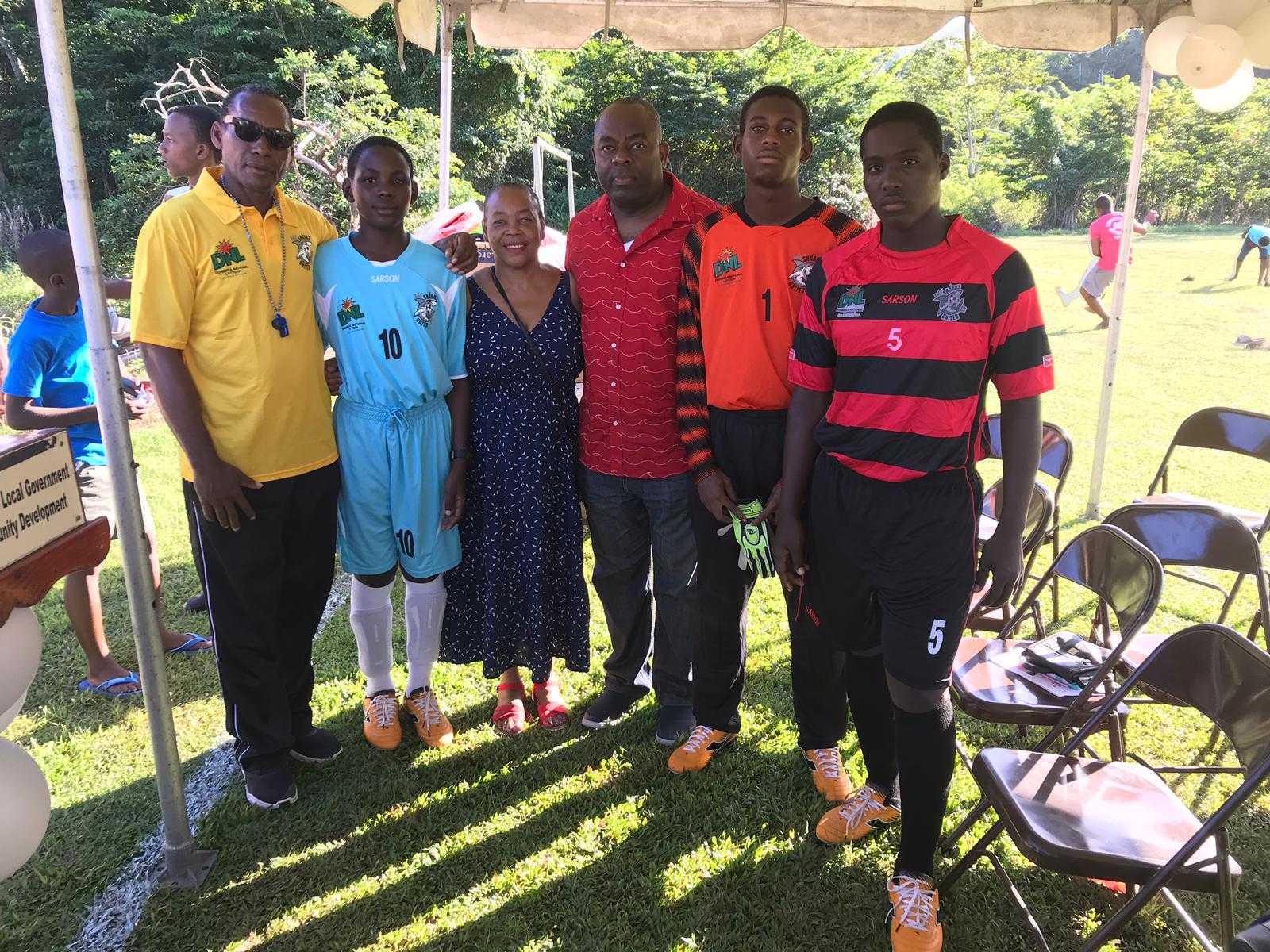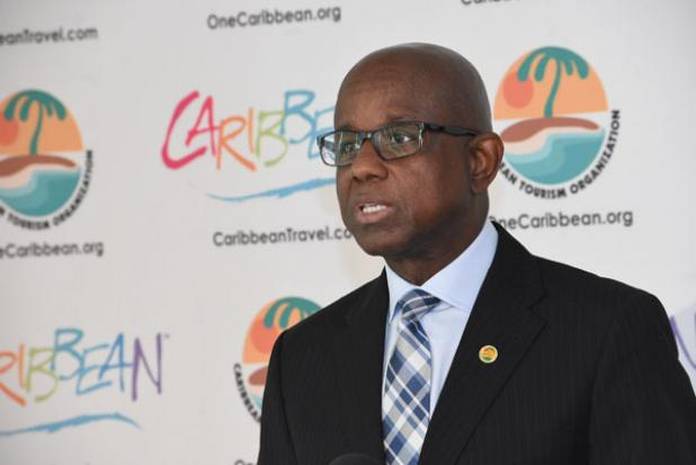
An Opinion Commentary: by Alex Bruno © 2018.
From the outset, let me declare that I support all those who, in times past and present, have championed causes to alleviate the people’s plight. I also understand those who have given up the struggle for whatever reason or reasons, as I seek to awaken new energies in an effort to keep the spirits of those who have perished in the struggle alive. It seems as if a tranquilizing cloak has been placed on the ascendant spirits, but it is my hope that the following article will help to inspire the next generations of revolutionaries. I rest this claim in the will of the good spirits of the ancestors.
A public protest is a function of the wider society and not necessarily the responsibility of any one institution of the society. Political parties are institutions within the society and they are integral units in the process; they assist in coalition building and the effective channeling of the people’s views, especially in the chambers of governmental authority. A public protest, therefore, is not merely the function of one institution or one set of people, and in more cases than not, political parties should not spearhead certain public protests.
Wherever there are grievances there will be protests. Dominicans have grievances, so Dominicans will protest. But why don’t they protest as they did in the past? What really is a protest? Does every protest achieve its desired objective? Have protests been able to humble any Dominican governing regimes? The responses to the questions posed in the preceding sentences are as follows: they do; protests take the form of writing, speaking, singing, and other social recreational art; every protest achieves its objective and yes, there was one protest which precipitated the downfall of the Patrick John led government of Dominica on May 29, 1979.
This protest was the culmination of several years of pent-up aggression and public demonstration against the Dominican government which had repeatedly featured a Dominica Labour Party (DLP) majority, dating back to the late 1950s. There was a crippling 47- day strike in 1977 in the lead up to that May 29, 1979 event, as well as a proliferation of strategic and cleverly executed pressure initiatives which helped to pull the rug from under administration. The major institutions of state and civil society all rallied against the John administration and the government was destined to collapse beneath the weight of a strangled economy.
It would help to backtrack to the pre-colonial Dominica and trek forward for a better understanding of just how and probably why the fighting spirits of Dominicans have been transformed. When Africans were brought to Dominica and were forced to work for the system, many brave brothers and sisters resisted. They defiled the plantation owners, destabilized society, strengthened the resilience and called for fierce resistance against the oppressors. They did this in several ways and many of the “enslaved” Africans simply ran away.
The majority of those who ran away were killed, but even while they were being killed they were still running: peeling away the mortal remains and becoming the spiritual energies which took on new embodiment. Africans who were once docile suddenly became engaged and enraged with the spirits of protest and no one understood, but it was the spirits and energies of those who died which had strengthened them. The system, however, discarded them as being crazy – mad – insane and since then, many fighters for equity and equality suffer the same fate where the system, or people representing the system, discards those unusual activists as being of being clinically deranged of psychologically demented.
The Africans who survived the escape kept challenging the system. It is their resilience that informed the quest for liberation. England handed “independence” to Dominica, but before that, there were forces which were for and against the terms of independence. During the pre-independence movements, the Dominica Freedom Party (DFP), the then opposition party, favoured a public referendum. This was a public vote by the citizenry to determine whether they wanted independence. The Dominica Labour Party (DLP), which commanded the majority in government, was against this and the push for referendum was defeated.
Why was there the need for a referendum when independence was automatic anyway? The fact is, the people could not say no to what was already designed by the colonizers to be so. Independence was just recompense for the years of struggle and fight by those who had unceasingly rebuked the system. England simply could not hold on to the colonies any longer because they were not economically viable and this is why the colonists, especially in Dominica, did not have to actually fight for independence. The damage had already been done over the years by the resisting Africans and other forces for change.
Since the failure of that referendum effort, protests went in high gear. People were urged on to protest for the replacement of the governing authority and not necessarily for basic survival. The strategy was to unite and mobilize the people around a series of issues, and this mission was achieved only five (5) months after Dominica’s independence which was celebrated on November 3, 1978. Why was it so important to replace the governing class? This question will be answered towards the end of this essay, but the ruling order had been shifted – thanks to the people.
Let us examine what has happened since then. Immediately after assuming office, following the general elections of 1980, the Dominican government under the stewardship of Mary Eugenia Charles (Later Dame Eugenia) tamed the commander-in-chief and mastermind of the 1979 upheavals, Charles Savarin (Now President Charles Savarin). He was made a state diplomat and sent to Brussels, while the other civic leaders were placed in key government-controlled jobs and/or quasi government engagements. Between 1980 and 1995, the incumbent government continued to pacify leaders of the people’s movement. Their children and relatives earned government academic scholarships and other such benefits and several others migrated.
Many social observers have commented on that era. Cleve “De Hurricane” Jean Jacques asked: “Where have all the union leaders gone” and suggested that they had become “Mamo’s boom boom fly.” Dame Eugenia, the then Prime Minister, was affectionately called ‘Mamo’ and she also earned several unflattering ones – no need for name-calling here. Cecil ‘Checker” Burnette, an eloquent social commentator, declared that “Who should run they eh running;” lamenting that the champions of the peoples’ struggle had abandon their posts when they were needed to stand up against the Dominican government in the late 1980 and early 90s. There was an obvious exodus from Dominican during the DFP’s rule, with many of those who departed being former agitators, DFP supporters and the brighter minds. I never understood what was going on, but I can vividly recall several of those individuals who migrated from my home village, Calibishie, during that time as being strong DFP supporters.
The DFP lost the majority in the Dominican government in 1995, but it quickly reasserted itself into power through a coalition arrangement or understanding or cooperation with the DLP in 2000. The mission was to unseat the then ruling majority of the United Workers Party (UWP), and this was achieved, almost without a public protest. Remember well that it was the same DLP which was so severely prosecuted by the DFP, but unity was somehow forged in the interest of governing authority. Mamo warned that the UWP should be removed from office by any means and at any cost, and the mamoites who had migrated in the 80s and 90s would return to ensure that the Dame’s warning was heeded (I will address this in some detail at a different forum).
The DFP/DLP amalgamation has enjoyed an unbroken rein of power in the government of Dominica since 2000, and, realistically speaking, the same ruling elite have remained in place for 35 of the 40 years since Dominica’s independence. The only break was the 5 months of John’s administration from November 3, 1978 – May 29, 1979 and the 4 years and 5 months of the UWP majority rule from June 12, 1995 – January 1, 2000. There have been numerous public protests over the years, all of which I have participated in, remembered and or documented, and it is obvious that there is something missing – the spirit of triumph and resilience and the gusto to fight.
The protests against the government of Dominica from the 1980s have paled in comparison to the uprisings of the 1970s. Why? It is my view that the system has been able to consolidate power by neutralizing the rebel elements and outfit them with the trappings or semblance of power. One may say that this began with Patrick John who was himself a union leader and “champion” of the peoples’ rights, when he became part of the system. It is said that the system tamed or corrupted him – well that was the clarion cry which framed to call for his political demise. I believe, however, that the undoing of Prime Minister John was written in the stars of the bourgeoisie. Of course, Mr. John played into the opposition’s strategic traps because of his bullish tendencies. He was also embroiled in a number of “questionable” dealings. John either misunderstood or underestimated the spirit of antagonism which he was up against.
When Patrick John fell, all protests stopped. Well, not all but whatever unified organization which was in place had been dismantled, as have already been discussed. When all the protests since 1980 are grouped together, they do not add up to the effect of this mother of all protests – May 29, 1979. On the eve of the 40th anniversary of Dominica’s most massive people’s uprising, I believe it is time for those who seek to rekindle the revolutionary spirits to take stock. Ironically, a number of leaders since Mr. John have followed in his exact path of political naiveté. They seem to think that things are what they used to, but they are not. The sad irony is, their political folly affect the people of the nation, because it is the people who feel the bite from regimes which have gotten too comfortable.
Let me offer some thoughts on the way forward for protests. First, it would help to study how the protesting order was assimilated into the status quo. Those who were at the front-lines were either placed in high office, some are too tired to fight, others are severely compromised and the others are six feet deep. The remaining agitators are plenty, but they are gravely disunited. They are disunited against a united system which is now more determined and equipped than ever before to break the back of any protest action even before it is announced. The system has people planted in every sector including the very protest planning groups, political organizations and parties, the civil service and private sector organizations, they are planted in action committees even outside of the homeland, and they take proactive measures to influence public opinion against any insurrection. How does one defend against this?
Secondly, for a public protest to be successful there must be the sort of organizational skills within, or at the disposal of the protesting units that can rival the system antics. Without that, the public protest is dead on arrival. What would be good, in the Dominican context, is for protest leaders to study the operations of other public protests and implement the ideas into their own efforts. This is possible even without excessive resources, but I must confess that many of the huge protests which have been waged in the contemporary era have been heavily financed by some sort of pressure lobby or interest group or groups.
Thirdly, momentum! If you want to have a successful public protest/event, you must frame it for success (and that holds for political parties who seek to win elections as well). Framing here means to place a name or tag or value on the event which will appeal to a wide cross section of the masses. For instance, if I were to arrange any form of protest against the government of Dominica today, I would not use the chant: “Skerrit Must Go!” Not because Skerrit cannot go or will not go – because he will, but because it dissects the mass appeal. Framing of the protest argument must reflect a universal humanitarian cause or causes, and time should be allotted for that call to resonate with the people. This is also a key attribute to massive turnout.
I will stop here for now, because there may be other dimensions at work. For one, the Dominican political culture has been radically transformed, especially within the past generation (20 – 25 years). This must also be considered when planning any public protest. The present governing incumbency has embraced Dame Eugenia’s principle of silencing the descending voices by purchasing them into subjugation. How else must one explain the April 2018 crossing of the floor from the opposition into government side of a very vocal and aggressive Member of Parliament, Joseph Isaac? Isaac’s ambitions alone did not push him across; economic considerations certainly played a lead role in that outcome.
Electoral politics in Dominica no longer appears to be an honorable pursuit to serve the people; it is probably the reverse, and this should be reversed. We have entered the domains of popular fanaticism where the glitz and glamour of the moment influence the people’s action. This is what has to be rivaled. The people need an alternative approach or design that would transform their ideas of politics and beliefs, alter their convictions and provide them with an all-abiding hope for the future. Beginning from the 1980s, many Dominicans were rubbed from their financial independence and, as has been discussed, this has not gotten any better. There is a hyper-socialization approach which is advanced by the ruling regime over the past years that has eroded the traditional Dominican way of life. It is this stretch out your hand syndrome that has sucked the spirit of fight out of many.
That dependency or mendicancy craze in Dominica is a major humanitarian fiasco. This is the main tool which is being used – especially post Topical Storm Erika and Hurricane Maria – to mussel the aggrieved masses and this situation need to be addressed urgently. This dependency has rubbed the people from their human dignity and their independence; the people cannot help but to feed at the feet of their providers. On the flip side, some of those who are financially independent have consolidated that status within the ruling elite. The remaining majority is up against all odds and as such may not readily stand against even their very state of destitution. Simply, the people fear of being left to starve if they show any descent and how can you blame them with the evidence which have been seen.
What I am sure of, however, is that playing on peoples’ vulnerabilities is never an advisable means of gaining their trust and acquiring their endorsement for governing authority. This is a very messy path to pursue which almost always ends poorly – more so for the governors because they have the most to lose. There is a desperate need for the rekindling of the public protest fire in Dominica, although the seismic magnitude of the silent protest may catch the ruling elite with their guards down. Ironically, this essay is a means of protest also, but the mother of all protests is peoples’ public manifestation against oppression and lack of progress. This has been the case since the biblical times.
It is said that Dominicans talk too much and take very little action, but talk is a form of action. So, keep talking because when the people stop talking they will take other forms of action which could be more devastating. As far as the spirit of Dominica’s goes, I recommend that consumers of this post give a listen to Andrew ‘The Scrunter’ Bazil, who in 1991 sang a song entitled: ‘Dominicans Get Smart.’ In that song, Scrunter gives a commentary of the state of affairs with public protests in Dominica then. If what Scrunter said is true, and it is, the situation today is ten times the case. Are we the wiser for it? I promised to answer this question: Why was it so important to replace the governing class? Please allow me to do so in part II.






